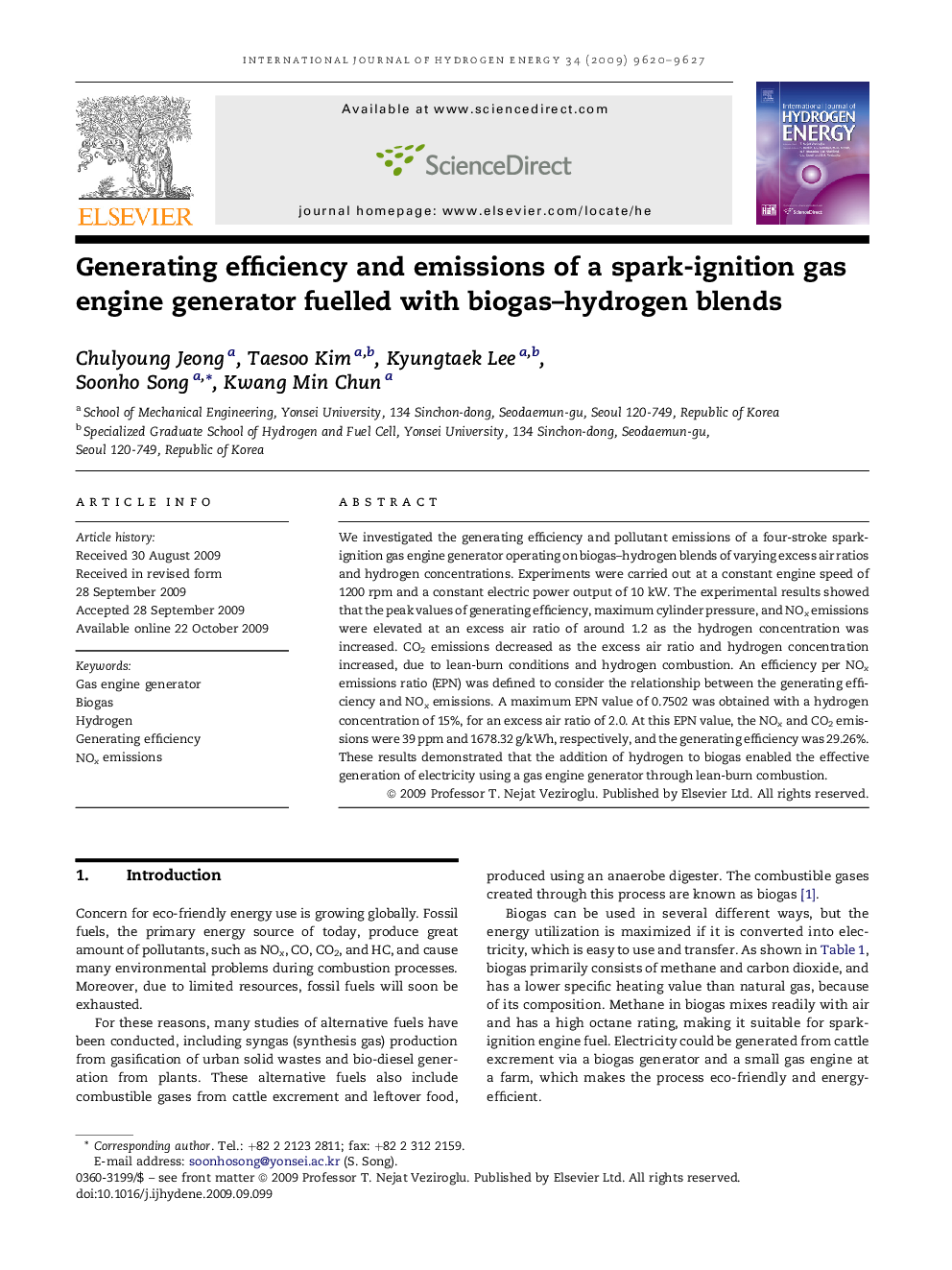| Article ID | Journal | Published Year | Pages | File Type |
|---|---|---|---|---|
| 1277258 | International Journal of Hydrogen Energy | 2009 | 8 Pages |
We investigated the generating efficiency and pollutant emissions of a four-stroke spark-ignition gas engine generator operating on biogas–hydrogen blends of varying excess air ratios and hydrogen concentrations. Experiments were carried out at a constant engine speed of 1200 rpm and a constant electric power output of 10 kW. The experimental results showed that the peak values of generating efficiency, maximum cylinder pressure, and NOx emissions were elevated at an excess air ratio of around 1.2 as the hydrogen concentration was increased. CO2 emissions decreased as the excess air ratio and hydrogen concentration increased, due to lean-burn conditions and hydrogen combustion. An efficiency per NOx emissions ratio (EPN) was defined to consider the relationship between the generating efficiency and NOx emissions. A maximum EPN value of 0.7502 was obtained with a hydrogen concentration of 15%, for an excess air ratio of 2.0. At this EPN value, the NOx and CO2 emissions were 39 ppm and 1678.32 g/kWh, respectively, and the generating efficiency was 29.26%. These results demonstrated that the addition of hydrogen to biogas enabled the effective generation of electricity using a gas engine generator through lean-burn combustion.
